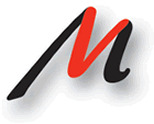

![]()
20/20 Insight GOLD - Top 5 FAQs
What national norms are available?
This is an appropriate question when referring to a rigid survey - a fixed set of measurements that can't be customised. When every person in every organisation is administered exactly the same set of items, it's possible to accumulate industry and national averages drawn from many organisations. However, when organisations use customised surveys, no two are alike, and national averages - norms - are technically impossible.
Rigid surveys were popular in the 1980s, although today most organisations no longer value the "one-size-fits-all" approach to 360-degree feedback. Instead, they require unique surveys that have been customised to align with the culture and practices of their particular workplace - even if they have to develop them in-house.
The use of customised surveys is an enlightened approach to feedback. For example, the leadership activities of a minister of a large Baptist church are simply not the same as those of a Marine Corps battalion commander. What a movie director does to get the best out of people doesn't involve the same actions as those of a dean of a law school. A sales manager doesn't lead people the same way a project manager of a construction site does. All these people are leaders, and it's important to give them feedback about how they lead; but each setting requires a somewhat different list of behaviours.
While feedback recipients are often interested in how their ratings compare with those of other people, this is not the most meaningful way to make sense of one's scores. The ultimate payoff of 360 feedback is improved performance, and this is possible only if an individual focuses on a single area of behaviour. Comparing high and low scores is the most effective start point, supplemented by comments and previous 360 scores.
Actually, comparing one's scores to the averages of one's group and one's organisation is far more meaningful and revealing than comparisons with national or industry averages, which are based on practices within other organisations and which involve different businesses, strategies, cultures, practices, challenges and technologies.
Placing importance on how one's scores compare with those of other people can be counterproductive. Experience has shown that individuals often lose interest in working on areas of performance when they discover that their scores are "above average." They may even conclude that they don't need to focus on any areas for self-improvement, because all their scores are above average. This predictable outcome defeats the individual's need for continuous improvement and enhanced competitiveness in the career marketplace, and it defeats the desires of coworkers for that person to improve how he or she works with them.
20/20 Insight GOLD doesn't use a fixed set of measurements. Instead, the program is designed to permit easy customisation, so that an assessment exactly mirrors the behaviours that are important within a particular organisation. National norms are impossible to collect and considered inappropriate to the needs of the organisation. If certain surveys are used organisation-wide and if a comparison of scores is desired, the software can compute and report local averages - both group project and organisation norms.
20/20 Insight GOLD
SOFTWARE
- Have Us Provide a Comprehensive
Feedback Service - Check out Our
Survey Software - FREE 30 Day Trial
- FREE Sample Reports
- Flash Tour
- PDF Booklet
- Learn more about
Surveys for Small Business - Site Map
